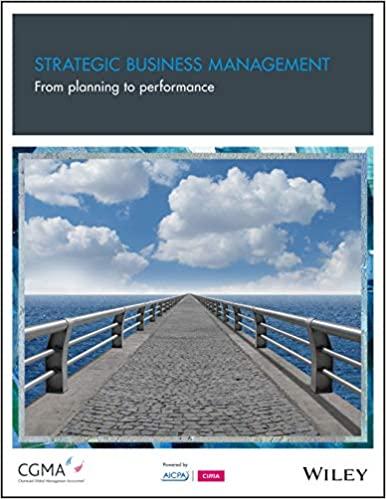Question
1A Isabel, a calendar-year taxpayer, uses the cash method of accounting for her sole proprietorship. In late December she received a $41,000 bill from her
1A
Isabel, a calendar-year taxpayer, uses the cash method of accounting for her sole proprietorship. In late December she received a $41,000 bill from her accountant for consulting services related to her small business. Isabel can pay the $41,000 bill anytime before January 30 of next year without penalty. Assume her marginal tax rate is 37 percent this year and next year, and that she can earn an after-tax rate of return of 6 percent on her investments.
Required:
- What is the after-tax cost if Isabel pays the $41,000 bill in December?
- What is the after-tax cost if Isabel pays the $41,000 bill in January? UseExhibit 3.1.
Note: Round your answer to the nearest whole dollar amount.
- Based on requirements a and b, should Isabel pay the $41,000 bill in December or January

1B
Isabel, a calendar-year taxpayer, uses the cash method of accounting for her sole proprietorship. In late December she received a $60,000 bill from her accountant for consulting services related to her small business. Isabel can pay the $60,000 bill anytime before January 30 of next year without penalty. Assume her marginal tax rate is 37 percent this year and next year, and that she can earn an after-tax rate of return of 7 percent on her investments.
Required:
- What is the after-tax cost if Isabel pays the $60,000 bill in December?
- What is the after-tax cost if Isabel pays the $60,000 bill in January? UseExhibit 3.1.
Note: Round your answer to the nearest whole dollar amount.
- Based on requirements a and b, should Isabel pay the $60,000 bill in December or January
1C
Bobs Lottery Incorporated has decided to offer winners a choice of $160,000 in 10 years or some amount currently. Assume that Bobs Lottery Incorporated earns a 8 percent after-tax rate of return. What amount should Bob's offer lottery winners currently in order to be indifferent between the two choices? UseExhibit 3.1.
Note: Round your answer to the nearest whole dollar amount.
1D
Hui is currently considering investing in municipal bonds that earn 8.55 percent interest, or in taxable bonds issued by the Coca-Cola Company that pay 11.40 percent.
Required:
- If Hui's tax rate is 22 percent, which bond should he choose?
- Which bond should he choose if his tax rate is 32 percent?
- At what tax rate would he be indifferent between the bonds?
- What strategy is this decision based upon?
Step by Step Solution
There are 3 Steps involved in it
Step: 1

Get Instant Access to Expert-Tailored Solutions
See step-by-step solutions with expert insights and AI powered tools for academic success
Step: 2

Step: 3

Ace Your Homework with AI
Get the answers you need in no time with our AI-driven, step-by-step assistance
Get Started


